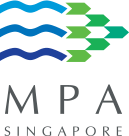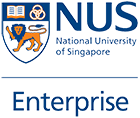Start-ups that Reimagine MarineTech
19 Aug, 2021We’ve all heard of FinTech, MedTech, EdTech, CleanTech, AdTech and the list goes on. As an industry that is responsible for moving more than 80% of global trade, the maritime sector has been on an accelerated digital transformation journey, and it is time for MarineTech to take centre stage.
Maritime technology, or MarineTech, is a family of technologies driving the transformation of the maritime industry, reimagined to address digitalisation, automation and decarbonisation. It is about the confluence of diverse ecosystem actors, expertise and technologies to address industry challenges and opportunities, and create value.
Take for example, Tagvance, an Internet of Things (IoT) start-up that first came up with a tracking solution to monitor headcounts and real-time locations of miners working underground as part of safety regulations. After identifying similar needs in the maritime industry, Tagvance became part of the pioneering cohort of PIER71’s Smart Port Challenge (SPC) in 2018. By combining their software with specially programmed tags, their solution identifies, locates and monitors action in high traffic areas such as ports, ship building facilities and industrial terminals. In addition to positioning data, it also relies on environmental sensor data to provide greater visibility of what is happening at a specific location, allowing operators to make decisions that improve the safety, efficiency and effectiveness of maritime operations.
While such asset tracking solutions protect maritime personnel from external risks, it is also essential for them to be properly trained in the use of equipment or the performance of operational procedures. Most people’s experiences of virtual reality (VR) are likely to be in gaming or entertainment, but this immersive computer-generated environment has gained recognition as a safe virtual space for learning practical skills without the physical risks associated with making mistakes. Classification society Lloyd’s Register recently certified the first VR course for liquified natural gas (LNG) bunkering (or refuelling) procedures, developed by Danish start-up Kanda, in collaboration with Eastern Pacific Shipping (EPS). The LNG bunkering process involves several steps that need to be performed in a specific sequence, with safety checks in place. From the comfort of their own homes, seafarers can interact and collaborate virtually with instructors and other trainees onboard a virtual ship that replicates the actual environment. Haptic feedback and simulated explosions add to the effectiveness of the training. Kanda’s foray into maritime began when they participated in SPC 2019, and subsequently received a grant from the Maritime and Port Authority of Singapore (MPA) to pilot a project with one of PIER71’s corporate partners.
Related to the bunkering process is the buying and scheduling of bunker. Operational inefficiencies, caused by manual transactions involving multiple parties, have created opportunities for a start-up like Claritecs to combine big data and artificial intelligence (AI) to aid decision-making and automate scheduling. In addition to bunker requirements, shipowners also make other decisions that impact commercial viability, supply chain efficiencies and the environment. Solutions using data analytics, machine learning algorithms and AI are being used increasingly to predict vessel arrival times, forecast demand, optimise routes, schedule inspection and maintenance, and even reduce carbon footprint. The Suez Canal blockage that occurred earlier this year demonstrated how having access to real-time data similar to those provided by Portcast can offer better visibility and predictability in unforeseen circumstances.
Congestion and other external factors that cause delays and changes in vessel routes mean a longer time spent at sea and an increase in fuel consumption. With the International Maritime Organization’s (IMO) goal of at least 50% reduction in total annual greenhouse gas (GHG) emissions from international shipping by 2050, compared with the 2008 level, there is a huge focus on decarbonisation across the industry. One of the more exciting technologies is from SPC 2020 runner-up, FUELSAVE, which uses advanced combustion conditioning to tackle inefficiencies in the combustion process to reduce fuel consumption and emissions such as Nitrogen Oxide (NOx), Carbon Dioxide (CO2) and Sulphur Oxide (SOx).
Being multi-faceted, the maritime industry offers opportunities for technology providers and start-ups across the entire value chain. Blockchain, visual analytics, autonomous robotics and smart wearables are some of the other technologies already being trialled and deployed. Applications for PIER71’s SPC 2021 recently closed and as we wait for the announcement of this year’s finalists, let us continue to go beyond the depths of our imagination and push the boundaries of MarineTech.
To learn more about other start-ups in the maritime space, click here.


